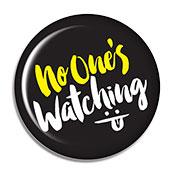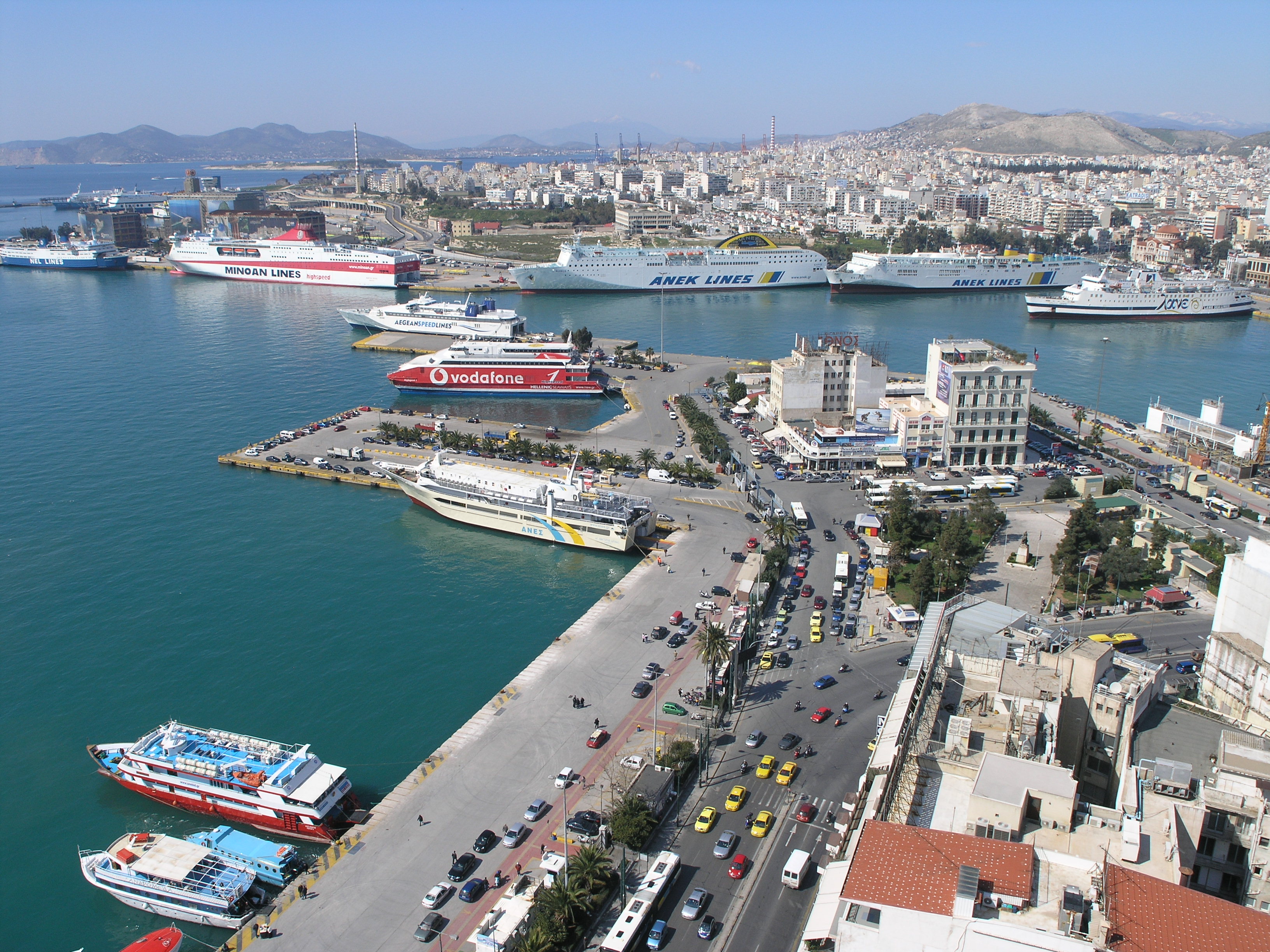
Welcome to No One’s Watching Week, the time of the year when the readers are away, and your tireless editors have run amok. For this week only, Atlas Obscura, the New Republic, Popular Mechanics, Pacific Standard, the Paris Review, and Mental Floss will be swapping content that is too out there for any other week in 2015.

The July sun seems to beat down especially hard as we wait for the ferry to approach. I spot several people walking around Piraeus, Greece’s largest passenger port, begging for money, which seemed like a new phenomenon since the last time I’d been back. A woman with dyed black hair and a pink camouflage T-shirt moves from person to person, saying, “Excuse me, do you speak English, I am a mother with child, OK, sorry if I bother you.” After giving her the little change I have in my pocket, the woman reaches into a plastic bag and hands me, for some reason, a packet of tissues.
A girl, maybe 13, wearing a tank top and miniskirt, comes around playing an accordion. “Please, give me money,” she asks each person, though no one pays her much mind. A blonde Canadian woman approaches me with a question about her ticket. “I heard you speaking Greek….” What she actually heard me say was, “Good afternoon, what time is it? OK, thanks very much.” This is not speaking a language. This is simply knowing things to say. An hour passes like this in what seems like one-million-degree weather. Dirty-looking dogs trot across the pavement or just lie baking by the dumpsters. Everyone in line with me seems to be foreign. The Athenian families and clusters of thick-haired Greek boys I remember standing here in my youth are all gone.
My grandmother lives in Athens; my father was born there and came to the States as a teenager. I used to visit every summer when I was a kid. I have Greek citizenship and a lapsed passport, but I don’t speak the language or have any real sense of Greekness, not the way these people asking for money do.
Sifnos is a sparsely populated dry rock in the sea, but it is my favorite place in the world, and I can pick it out at a distance from all the other dry rocks.
The blonde Canadian woman, who I learn is here on vacation with her daughter, asks me what the boat will be like, but I haven’t been here in years, and, besides, they’re all different now. Piraeus to Sifnos took eight or nine hours when I was little, but the ticket now says it will take only two (which means it’ll more than likely be closer to about four).
Earlier in the day, on my way to the ferry, a taxi driver had asked if I was Greek. I awkwardly told him yes, sort of. He looked at me through the rear-view mirror, replying that “Odysseus is always wanting to return to Ithaca,” in a tone that suggested he found nothing bizarre in his words. I couldn’t tell if the driver was telling me this because he thought I was Greek or because he’d decided I was a tourist.

In the mid-2000s, the Greek stock exchange was on track to pass its all-time high from the autumn of 1999, before the tech bubble burst. The new speedboat ferries rolled in around the same time as the Olympics, and when Greece won the UEFA Euro that same year everyone thought they were invincible. Still adjusting to the Euro, they spent as though crazed. For the first time, small banks cropped up and personal loans came into vogue, along with credit cards. Everyone bought cars. Business boomed, despite no one having any actual disposable income.
Two jet-lagged American girls with Brandy Melville tanks and messy topknots join the line to the ferry. They drop their too-big backpacks and stand over them smoking and sweating. The bottoms of their bottoms are hanging out of their shorts. There is a near-certain chance they are going to Santorini, the mid-sized island famous for being the aftermath of a spectacular volcanic caldera, and for its role in The Sisterhood of the Traveling Pants. These girls undoubtedly think of a gyro as prime drunk food, and also that it is pronounced “jai-ro.”
Santorini, along with the other bucket-list party islands like Mykonos and Ios, has a tourist economy derived overwhelmingly from foreigners, and is apparently weathering the debt crisis just fine. The same cannot be said, on either count, for Sifnos, where I am headed. Sifnos is a sparsely populated dry rock in the sea, but it is my favorite place in the world, and I can pick it out at a distance from all the other dry rocks. More specifically, I’m headed to Faros, perhaps the least touristy town on one Greece’s least touristy islands. Almost all its patrons are Greeks vacationing from the mainland.
In the ’90s, when I was a kid, Faros was inexplicably included in some kind of Swedish travel guide. For years afterward, the beaches would teem with tall blonde Swedish families. This was good for business (and I even managed to get a Swedish pen pal for a few years) but I deeply resented whoever wrote that article. Let the Swedes have Santorini and Rhodes; I wanted Faros to my (selfish) self. Each time I returned back, I would first survey the beach out of my peripheral vision, afraid to look directly at the sand, lest a McDonald’s had sprouted up.

The sweat continues to roll off of us as we wait for the ferry in Piraeus, dripping onto the pavement where it sizzles like pig fat. Athens still smells the same to me, like cigarettes and geraniums, and hot Earth and asphalt in that dying afternoon way, and I miss the smell when I’m not there even though I don’t smoke and suffer from heat stroke like you wouldn’t believe.
The ferry finally comes, and we all pour onto it gratefully. The boat quickly pulls out of the harbor, past a massive graffiti rendering of the Winged Victory at Samothrace, which, like all good Greek ruins, is no longer in Greece. The ocean is the deep matte uniform lightless blue that I love, which makes the white crests look even whiter, like little mountains capped with snow. Tomorrow, the Greek government will approve the austerity terms its people just voted against. Thousands of citizens will gather in protest and riots will break out, and people will wonder if they’ll be able to open their businesses next year.

Once in Faros, it’s with a warm pang of nostalgia that I approach Vasiliki Sirigou’s place, passing first the dirt parking lot out front where I used to play soccer with her children. An old friend of the family, Vasiliki runs the small hotel we’ve stayed at since I was a toddler. I haven’t seen her in years, but she will still pinch my cheek and call me koukla and tell me I look like my dad. The rooms inside are bright and clean, everything white, with a view of the beach from the window. The place is noticeably quieter than I remember it, with more empty rooms than there should be at this point in the season; late July to mid-August typically provides Vasiliki with almost all of her year’s income. Across the country, banks are allowing Greek nationals to withdraw just 60 Euros per day, and soon that number will dip to 50, because the ATMs have run out of twenties. Greeks can only spend on food and gas. Although Vasiliki was fully booked going in to the season, she suffered 16 cancellations, all Greeks, just in the time that I was there. The beach is now mostly empty. The Swedes stopped coming years ago.
Sifnos is home to 2,300 year-round residents and 365 churches. Before the Greek economy plummeted in the late 2000s, the population would swell to 9,000 or so in a good summer. Faros, which is not among the more notable towns, used to get around 250 people in the high season; without them the town has a resting population of just 60. It’s a regular fishing village: little wooden boats bobbing, a surplus of cats.
Sifnos is one of the more distant islands, but the ferry ride used to cost the equivalent of less than $10 before Greece joined the Eurozone in 2002. (Unlike the more popular islands, Sifnos has no airport.) These days, a ticket will run you 50 Euro each direction. Likewise, Vasiliki’s room rates have quadrupled. As Vasiliki explains it, she simply had to find a way to make an income with prices ballooning on everything. Before long, the only Greeks traveling to Sifnos were the wealthy ones. By raising their prices even higher, local island businesses have been forced to cater to the wealthy—their only remaining patrons. Small places like Vasiliki’s, lacking funds to renovate and upgrade to posh, new furniture, often fall behind and never recover. The wealthy don’t stay at places like hers, and the working-class Greeks who used to keep her in business now stand on the outside of an invisible fence.
This past year, 2015, was initially supposed to be a boom year because tourism was good to Greece as a whole, but those numbers mean places with cruise ships and all-inclusive hotels—not family-run businesses like Vasiliki’s.

These days, because Faros is my favorite place in the world and I desperately want as many people as possible to know about it, I tell to anyone who will listen the address of Vasiliki’s hotel: Sifneiko Arxontiko, Faros Sifnos GR 84003.





